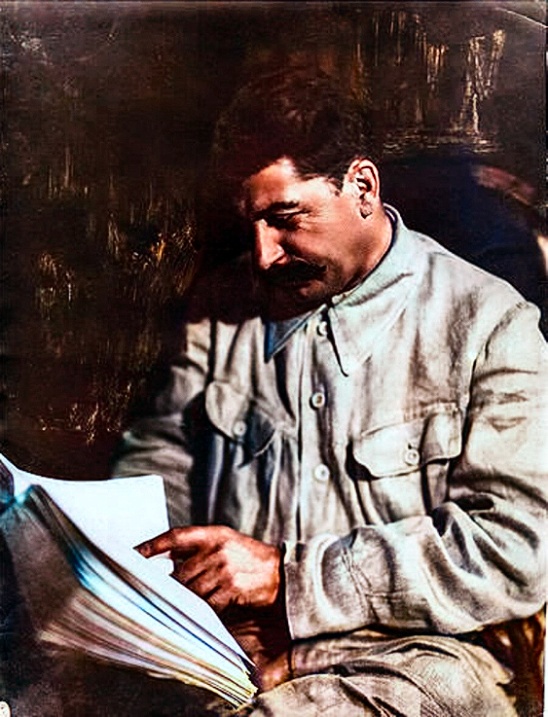- cross-posted to:
- worldnews@lemmygrad.ml
- cross-posted to:
- worldnews@lemmygrad.ml
Now, he said, the Russians have a manpower advantage of around five to one. Only about 20% of the casualties his battalion takes are replaced by new recruits, and the mobilized men who arrive tend to be older than those who volunteered at the start of the war. As in other brigades, the average age of infantrymen has ticked up over 40.
Rob Lee, a senior fellow at the Foreign Policy Research Institute, said that Ukraine’s manpower shortage was a hangover from last summer’s failed offensive, when Kyiv took massive casualties. The situation should improve by next year, he said, when men who are now being drafted would be trained and ready to join the fight. In addition, Western production of artillery ammunition should increase by the end of this year.
Rob. If you “average infantryman” is over 40 you’ve lost and you’re bleeding out.
This is sickening. They’ve killed or maimed every young man in the country that they could catch and force to the front and now they’re working their way down the calendar to keep this going.
You also have to keep in mind how fucked up the demographics in Ukraine are. For some weird reason, birthrates were really low in the 90s while many people left the country. https://en.wikipedia.org/wiki/Demographics_of_Ukraine
Oh wow that’s weird I wonder what happened in the 90s that would do that.
For some weird reason

WAKE ME UP
WAKE ME UP INSIDE
I CAN’T WAKE UP
I wonder what happened in the 90s? Mysteries abound.
in trouble on the Eastern Front, outnumbered

Uhhh Ukraine is steamrolling towards Moscow, sweaty
As in other brigades, the average age of infantrymen has ticked up over 40.
This is what to the last Ukrainian looks like
deleted by creator
indeed
Of course. They threw their best troops in the Kursk direction, they aren’t Ukraine’s priority at the moment. Maybe Ukraine thought their advances there would draw Russian troops away and relieve pressure from the east but from what I’ve heard, the Russians are prepared to lose some more ground in Kursk if that means taking Pakrovsk. Neither side is moving their troops and just lets the other side continue to advance. Bizzare, really.
Ukrainian gambit is that taking land gives them negotiating table chips, while the land that they are sacrificing is land that would be given to Russia in a negotiation anyway. They’re banking on the fact they’re not actually losing anything and that gains past a certain point are something Russia wouldn’t want anyway since they couldn’t keep/occupy the land that isn’t majority russian-ethnicity in a reasonably stable way.
I think it probably means the thing they care about more in negotiations is policy. They’ll give the russian land back and let them keep donbass/crimea but will want nato membership as a trade off and safety guarantee or something in order to sell the loss of those territories as acceptable.
will want nato membership as a trade off and safety guarantee
NATO ain’t gonna take you, hun
steiners counterattack will allow us to push them back - some ukrainian general idk
The Kursk incursion works in Russia’s favor because it means that AFU has to be attacking in the open making it much less costly to eliminate them than having to storm trenches and fortified cities. Given Russian army’s vast superiority in numbers, they don’t need to pull troops from the south to halt Ukraine in Kursk. They do want Ukraine to over commit to their offensive though. The more troops Ukraine wastes in Kursk, the faster the rest of the front collapses.
This shouldn’t be a big deal since Russia takes a 10:1 casualty ratio
deleted by creator
Reduce Ukkkraine to desperste slav labor and have it dependent on Poland. Also to burn it in their memory to go against Russia in WW3 20 some odd years from now with modern high tech weapons.
Gotta eliminate that youth bulge somehow
Sounds like a bad idea to arm them with depleted uranium and cluster bombs if that’s the goal.
Operation Bagration II is coming
Russia should keep pushing in the south. Kursk won’t mean shit if the Southern front collapses.
Exactly, once Russia splits the front in two at Pokrovsk, it’s gg well played. The Kursk situation will only expedite their downfall, considering Ukraine was already overextended. Their reliance on Western support necessitates visible victories for their sponsors. This strategic disadvantage leaves them unable to execute tactical retreats or any actions deemed unfavorable by the West. They must continuously demonstrate offensive prowess, hence such maneuvers as the Kursk incursion. Contrarily, Russia’s military enjoys greater freedom from media scrutiny, granting it substantial flexibility in combat operations.
















